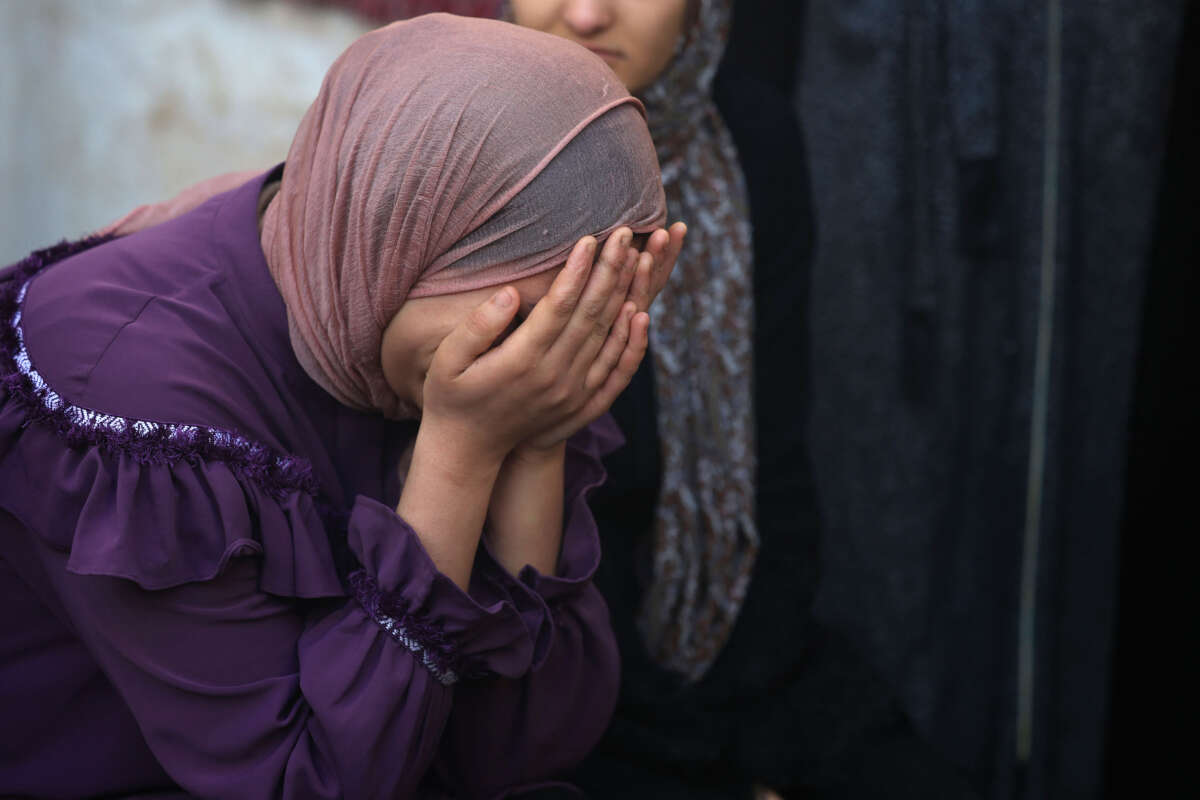The rate of miscarriages has skyrocketed in Gaza, health care workers in Gaza have reported, with issues like malnutrition and lack of access to health care and hygiene caused by Israel’s violent siege and blockade spurring major health crises across the region.
Health care professionals in Gaza have seen a 300 percent increase in miscarriages since Israel began its genocidal assault, a CARE International representative told Jezebel in a report published on Wednesday.
Reproductive care was already hard to access in Gaza before the current assault began, with Israel’s 16-year blockade leaving tens of thousands of people without access to reproductive care in Gaza, according to UN estimates.
That problem has worsened significantly as Israeli forces have systematically dismantled every form of basic infrastructure in Gaza, with systems for water, food, electricity, communications, health care, and other basic survival needs severely curtailed or destroyed.
Israel’s ongoing genocide has resulted in a litany of circumstances that can cause miscarriages and fetal abnormalities. Studies have shown that the risk of miscarriage increases with exposure to armed conflict, a lack of access to reproductive care, contaminated water, exposure to communicable diseases, malnutrition, rapid weight loss, starvation, and more.
Reproductive rights groups have said that the reproductive care system in Gaza was essentially fully dismantled within the first weeks of the assault. Now, months later, there are no more hospitals in northern Gaza and only a few health facilities running at partial capacity left in the South. Existing facilities are already operating at 10 times their normal load for pregnancy cases — leaving pregnant people with very limited options for facilities to give birth in, and virtually nowhere to seek pregnancy care.
Every pregnant person in Gaza is at risk of having to undergo delivery in unsafe conditions, executive director of the Palestinian Family Planning and Protection Association Ammal Awadallah told Jezebel. Pregnant people are being forced to give birth in cars, tents, and shelters, Awadallah said — and even when a pregnant person is admitted to a medical facility to give birth, they have no access to anesthesia. Even further, the lack of antiseptics and other methods of hygiene is severely increasing risks for infections for people giving birth.
Meanwhile, CARE advisor Nour Beydoun told Jezebel that newborns are endangered by the infections and complications of people who just gave birth, with many newborns dying due to lack of staff, facilities, electricity, hygiene, and other issues caused by Israel’s siege.
Doctors Without Borders recently shared a story of a woman who was turned away from a hospital when she began labor because the delivery rooms were already full. She was forced to give birth to her son in a bathroom in the camp she was staying in, and her son died.
Other forms of reproductive care have also become extremely scarce, with people unable to find menstrual products like pads and forced to reuse pads or pieces of cloth in their place, putting them at risk of urinary tract and other reproductive infections. And because of the untold amounts of trauma that Palestinians are undergoing, Awadallah added that many people are now getting their period several times a month.
Advocates have said that fighting for reproductive justice also means fighting for a free Palestine, and that a ceasefire and liberation for the Palestinian people is the only path forward.
“The interconnectedness of feminist struggles across borders should continue to propel those fighting for reproductive autonomy at home to also speak against reproductive control in occupied Palestine,” Rimsha Syed recently wrote for Truthout. “Equitable access to sexual and reproductive health care stands as a significant part of Palestinian women’s pursuit of self-determination. One must not forget that intentionally controlling women’s reproductive livelihoods is part of Israel’s goal of eradicating the Palestinian population.”
